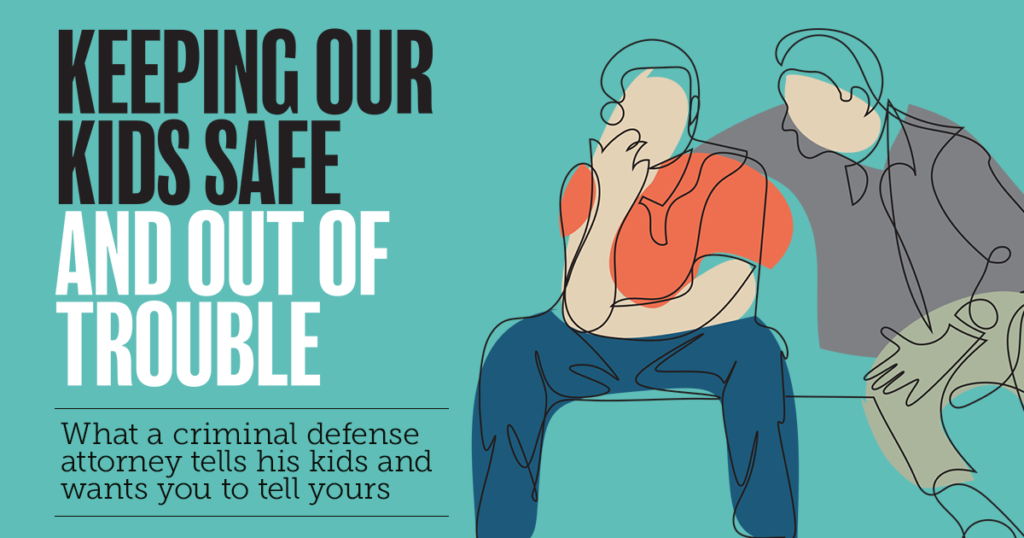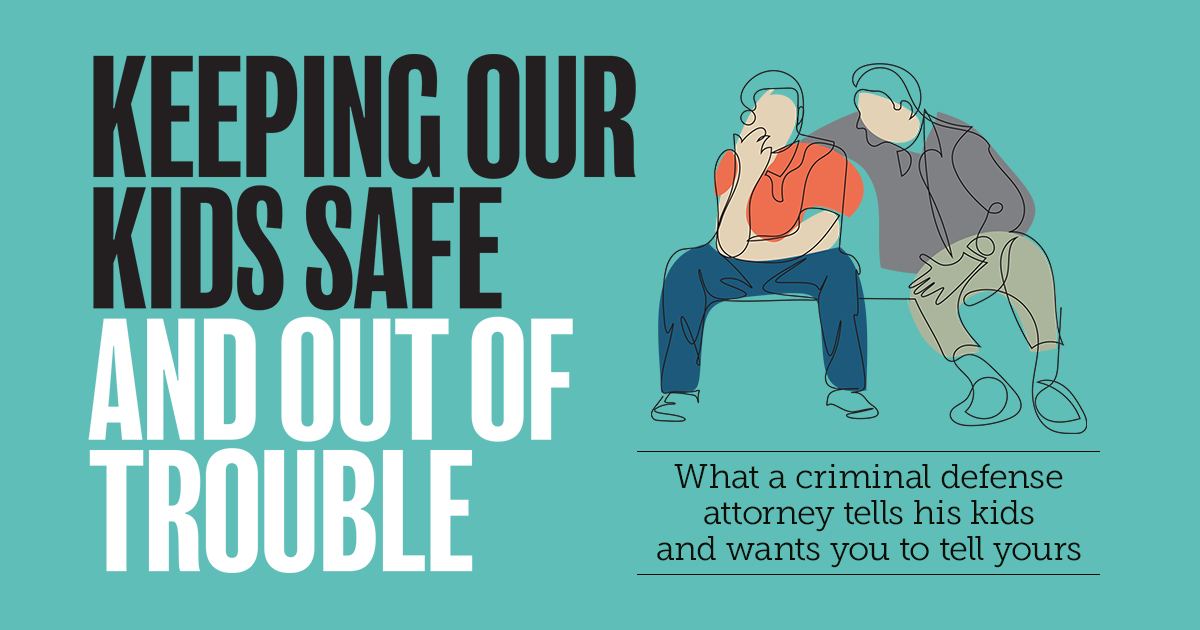Talking to the Police
What should a teen say if the police catch them at the scene of a crime and they are a suspect? What should they expect if they are brought to a police precinct? What should you do if the police show up at your door and you have no clue why they are there?
In this chapter, we’ll cover the most important rule for talking to the police as well as tactics for dealing with the police in five specific scenarios:
- Police show up at the scene of the crime
- Police show up at a suspect’s door
- Police call on the phone
- The ride to the precinct
- At the precinct
These are universal rules for dealing with the police, so while I am giving you this advice to discuss with your kid, if you ever find yourself in a similar situation, you should follow the same guidelines.
First, let me restate the golden rule of talking to the police: Keep your mouth shut. If you and your teen get anything from this chapter, I hope it’s this: You have the right to remain silent. Use that right. If you don’t, then the likelihood that you’ll inadvertently implicate yourself is high, no matter your intentions.
Don’t make statements before consulting a lawyer. Having an attorney gives protection from the pressure to make a statement. Once an attorney tells law enforcement that a client has retained him, he can request that police stop questioning the suspect and, legally, the police must stop.
Now, let’s talk about a few common scenarios where your teen might be questioned by the police.
Police Question You at the Scene of the Crime
It is so tempting in the moment to blurt out everything that happened during a crime to an officer of the law, especially when they approach you with a gruff, “What happened here?” Tell your teen not to talk to the police about what happened. In all reality, they will probably make the situation much worse for themselves. Take, for instance, this situation that actually happened to one of my clients:
There was a bar fight, and someone had his head busted open, but the police weren’t sure who did it. (Keep in mind that a bar isn’t the best place to get the most accurate information, considering that many people are intoxicated and it’s dark and loud.) When the police questioned my client at the scene, he told the police, “I was three feet away from him, but I didn’t touch him!” My client thought he had exonerated himself by telling the police he hadn’t hit anyone. Instead, what he did was put himself at the scene of a felony assault. He admitted to being three feet away from the victim, which was close enough for an attack. Together with recollections by other patrons, the police had probable cause to arrest my client.
While the police might have enough evidence to arrest you without your admission, there is no reason to inadvertently help them gather more evidence. Once police decide to arrest you, there is no talking them out of it. While you may think you are being helpful or getting yourself out of trouble, you are actually providing the police with more fodder for prosecution.
Remember, parents, this applies to you too. If you are at the scene of the crime, any information you give the police could be used against your kid. Don’t make the investigation against your child easier for the police.

Keeping Our Kids Safe and Out of Trouble
To learn more about Talking to the Police and other issues that parents and teens face click below to purchase my new book Keeping Our Kids Safe and Out of Trouble: What a Criminal Defense Attorney Tells His Kids and Wants You to Tell Yours.
